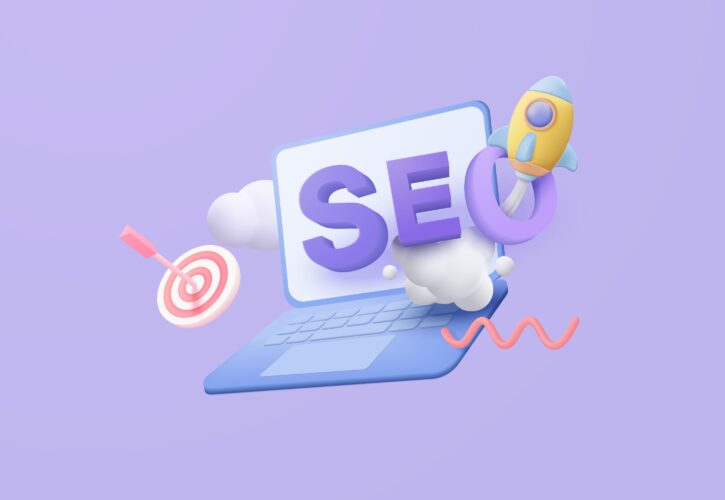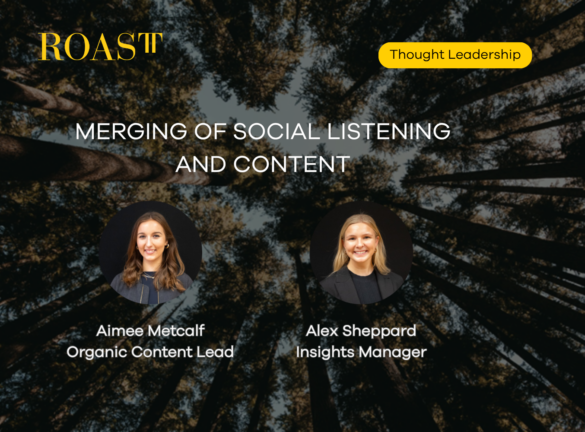
What is Search Engine Optimisation?
What is SEO / Search Engine Optimisation?
SEO stands for ‘Search Engine Optimisation’ and it is the process of optimising a website to improve its rank in search engines for relevant terms. This increase in visibility when people search for products or services related to your business through a search engine generates an increase in organic traffic and leads. The better visibility your website has, the more likely to attract the attention of new and existing customers to your business.
Why is SEO important?
Search engines are one of the most common channels through which users research products and services before purchasing.
SEO is a significant part of digital marketing as there are trillions of searches conducted across multiple search engines every year, with countless businesses trying to be seen. If you want your business to be seen, you need to specialise in your SEO skills in order to show up higher on the SERP (Search Engine Results Page) through organic searches.
How does SEO work?
A common search engine such as Google uses ‘crawlers’ that gather information from different sites by scanning the web page for internal links within that site as well as external links that links to pages from other sites.
The crawlers then put this information into an index where the information can then be pulled using complex algorithms when a user types a search query into the search engine. The search engine will then show the user what it believes to be the most accurate and relevant information for their query. These are known as ‘organic results’ which can display web pages, feature snippets, PAA’s, images, videos, local listings, and much more niche search results.
Unlike PPC advertising, you can’t pay for the search engines to rank your business higher on the SERP, so multiple elements of SEO must be implemented in order to rank organically.
What are the Important Elements of SEO?
Keywords and Keyword Research
There are multiple elements of SEO that use one another in order to have a successful webpage. The use of ‘keywords’ are the most common practice of SEO. Keywords are words and phrases used to find certain products or services on a search engine. As a result, Businesses should consider researching keywords to include on their web pages to ensure their content can be noticed on the SERP by potential consumers. When doing keyword research, SEO tools can be used in order to find the keywords with the most search traffic and low competition in relation to your business’ products or services, which can help improve site ranking.
Different types of keywords need to be used such as ‘short-tail keywords’ which are 1-2 word searches that offer a broad search. ‘Long-tail keywords’ are more of a phrase search that offers a much more precise search to what the user is looking for. However, as search engines are becoming more complex, it is making it harder to rank higher on the SERP using just keywords. SEO’s must consider several other factors including strong titles and headings, metadata, page speed, linking, quality content, local SEO. These factors all play a role in where a site will rank on the SERP and against competitors.
Local SEO
As previously mentioned, there are multiple other factors of SEO that contribute to the success of a higher-ranking webpage. One of the most modern methods is through Local SEO. Local SEO helps your business become more visible in local search results, such as Google Maps listings. Search engines such as Google uses a local search algorithm that includes a proximity factor, which basically means that Google considers your location when searching for something even without the use of a local keyword.
Local SEO and mobile usage come hand in hand, with 61% of all Google searches being performed on mobile as well as 46% of all total Google searches having local intent. As more people are using mobile phones for searches, it is becoming increasingly important to implement.
For example, restaurants could benefit from Local SEO to ensure they show up on the SERP when a user conducts a search for restaurants in their local area. Local SEO can be used using local keywords, map blocks, and location-specific pages on the website.
Content
Content can be described as a whole host of different online and offline activity for your brand. Understanding what content you’re producing, why you are producing it, what KPIs it has, and how it sits in your content hierarchy, is crucial for driving organic and any other traffic to your website.
Content is a vital element of SEO as it is used to reach and engage audiences. The content used needs to be informative, relevant, shareable, and engaging to have a higher site ranking on the SERP. Aligning your content with search intent will be the best way to improve your site ranking as you want your content to match up to what people are searching for.
For example, a user looking for a recipe will likely use different keywords compared to a user looking to purchase the food rather than making it themselves. Search engines can recognise this difference in keywords within search queries, in this case the keywords ‘recipe’ or ‘buy’ would play a significant role and can push the most relevant web pages to match the user intent. So, to rank higher on the SERP you will need to understand the search intent and create content that matches up with it. Google has recently rolled out a ‘Useful Content Update’ which is to make sure that content uploaded on to webpages is ‘people first’ and not to just rank higher on the SERP. This update is to make content relevant and stop webpages from straying away from their main topic to just report on anything that they see fit or trending at the current time in order to be recognised by the search engine and rank higher on the SERP.
Page Speed and User Experience
Search engines such as Google, consider loading speed as a primary ranking factor especially on mobile devices because it is a great way to improve overall user experience. Tools can be used in order to check your website’s loading speed. The tools will identify what the issue is that is causing the slow loading speed and will tell you how to fix it. These issues will need to be rectified as quickly as possible in order to have a higher ranking on the SERP.
URL Structure
A clear URL structure provides search engines and users with an idea of what a webpage is about. The use of targeted keywords is also helpful as it can increase your chances of ranking better in the SERP.
Shorter URLs are much more SEO friendly than longer URLs as they are easier to read, navigate, and share if necessary. In addition to this, search engines often favour URLs containing a ‘https’ as this adds privacy and security to the website which in turn can help aid a higher SERP ranking.
Off-Page SEO
Off-Page SEO refers to the actions taken outside of your website to help improve rankings on the SERP. Optimising for off-page ranking factors involves improving the search engine and the user’s perception of the site’s popularity, relevance, trustworthiness, and authority. Examples of off-page signals are backlinks, social signals, content marketing, and local SEO. These factors of off-page SEO simply tells Google what others think about your webpage. So, if you have valuable links pointing to your website, Google will trust it which will allow it to rank higher on the SERP. However, it’s not just backlinks that are used for off-page SEO. Another important factor is content marketing such as social media. Even though social media isn’t a direct ranking factor, it helps your business gain more attention. The more users that share your content, the more links are going around pointing at your webpage. Even if you don’t get many shares or links, you will still gain more attention, which will drive more branded searches and mentions for your business.
Why is off-page SEO important?
A website with strong off-page signals such as a high volume of quality and relevant referring domains will rank higher than a similar website with fewer referring domains. Off-page SEO is seen as important because whilst search engine algorithms and ranking factors are constantly changing, factors like relevance, trustworthiness, and authority don’t change too much and are viewed as the backbone to helping your website rank positively. Websites with high authority tend to rank higher than those with lower or no authority because the search engine will view them as more credible, relevant, and trustworthy.
Backlinks
Search engines use backlinks as an indication of the quality of the content on a webpage. If many sites link to the same webpage or website, then the search engine can view it is a trustworthy source to rank on the SERP.
Site Structure
Site structure is also known as domain infrastructure or information architecture, is referred to how you organise the content of your website. Good website structure helps search engines to crawl content and understand what your site is about because the structure establishes hierarchy and demonstrates the relationship between pages
Internal Links
Internal links build site structure.
They allow the users to navigate around the website easier and highlight key pages to search engine crawlers. A website’s primary focus is to put information in front of your target audience, so having clear website navigation will improve UX (user experience) and make it easier to find site pages. Having a good UX will allow users to take something away from your website, may that be, buying products, signing up for newsletters, or even just returning to the website.
Site structure isn’t only important for the user, it also affects the search engine as it gives it clues on where to find the most essential content. Search engines need to crawl websites to find information which can be found following links, internal and external. Once the search engine has crawled your website, it will be able to understand it better and then it will provide more relevant search results for people who are looking for your products or services.
We Are ROAST’s SEO library
After covering the fundamentals of SEO, ROAST also has extra SEO-related information to browse:
- Intern to SEO pro
- Google my business
- Why launching a website before implementing SEO is a bad idea
- Navigating the search landscape
Interested in finding out more about SEO? Reach out to our team here.






